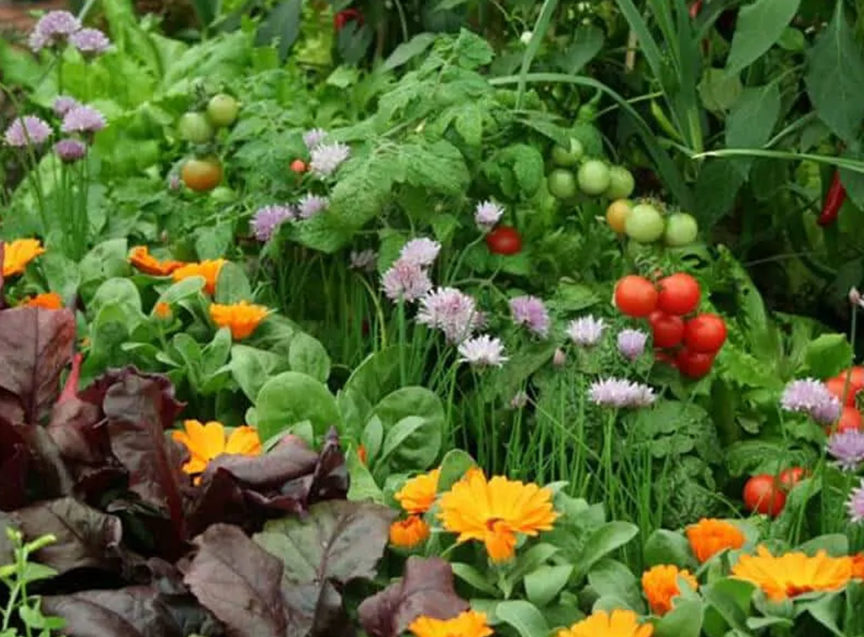Seasoned gardeners know that a diverse mix of plants makes for a healthy and beautiful garden. Many believe that certain plant combinations have extraordinary powers to help each other grow and thrive.
Gardening wisdom says that certain plants, when grown together, improve each other’s health and yields. For instance, some plants attract beneficial insects that help to protect a companion plant, while other plants (particularly herbs) act as deterrents or repellents for unwanted pests. If you mix in flowers and herbs, it becomes more difficult for pests to find your veggies. The scent of flowers and herbs, as well as the change up in color, is thought to confuse pests.
There are plenty of reasons to plant certain crops together. For example…
- Shade: Large plants provide shade for smaller plants in need of sun protection.
- Natural supports: Tall plants like corn and sunflowers can support lower-growing, sprawling crops such as cucumbers and peas.
- Improved plant health: When one plant absorbs certain substances from the soil, it may change the soil biochemistry in favor of nearby plants.
- Healthy soil: Some crops, such as bean and peas, help to make nitrogen available. Some plants with long roots bring up nutrients from deep in the soil, enriching the topsoil to the benefit of shallow rooted plants.
- Weed suppression: Planting sprawling crops like potatoes with upright plants minimizes open areas, where weeds typically take hold.
Roses and Garlic
Gardeners have been planting garlic with roses for eons since the bulbs can help to repel rose pests. Garlic chives are probably just as repellent, and their small purple or white flowers in late spring look great with rose flowers and foliage.
Marigolds and Melons
Certain marigold varieties control nematodes in the roots of melon without using chemical treatments.
Tomatoes and Cabbage
Tomatoes repel diamondback moth larvae, which can chew large holes in cabbage leaves.
Cabbage and Dill
Dill is a great companion for cabbage family plants, such as broccoli and brussels sprouts. The cabbages support the floppy dill, while the dill attracts the helpful wasps that control cabbage worms and other pests.
Cauliflower and Zinnias
The nectar from the zinnias lures ladybugs and other predators that help protect cauliflower.
For a broader list of companion garden plants check out the Old Farmer’s Almanac: https://www.almanac.com/content/companion-planting-guide


